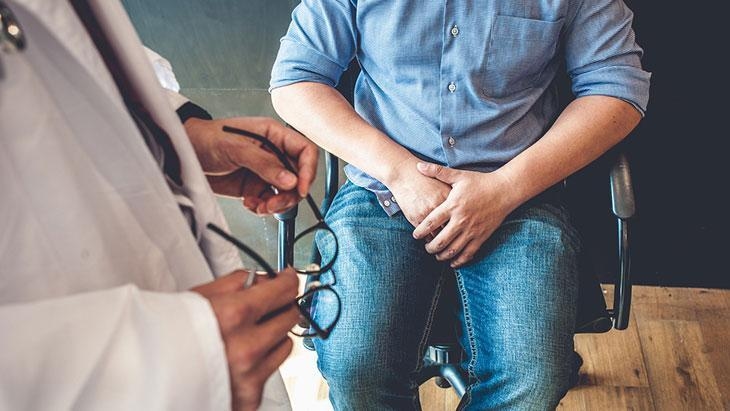Prof. Dr. Simten Malhan: If there is a lung cancer screening program, the deaths of approximately 7,000 patients could be prevented.

AstraZeneca Turkey and the Turkish Medical Oncology Association (TTOD) organized a program at a restaurant in Atatürk Forest Farm on the occasion of "Lung Cancer Awareness Month."
During the program, expert participants evaluated the report titled "Lung Cancer in Türkiye: Policy Recommendations in Light of Current Data," prepared in collaboration with AstraZeneca Turkey and TTOD, and lung cancer awareness.
🔹 Anadolu Agency for current developments, exclusive news, analysis, photos and videos
🔹 AA Live for instant developmentsBaşkent University Faculty of Health Sciences faculty member Prof. Dr. Malhan told an Anadolu Agency (AA) reporter that lung cancer poses a significant economic burden due to its high risk of death, complex treatments, new therapies, and different disease development and course.
Malhan pointed out that some studies estimate that the burden of lung cancer, along with other cancers, will reach $25.2 trillion globally between 2020 and 2050, and that lung cancer constitutes the largest economic burden here, accounting for 15 percent.
Malhan stated, "The cost of lung cancer in Türkiye is 129 billion lira. We see that the treatment burden alone is 48 billion lira, while the rest is a societal burden. Because a cancer patient cannot exist alone. It's a disease that affects the immediate environment, society, and the economy. The patient's immediate environment is also involved in this treatment process, including the economic and labor losses of the patient and their caregiver, as well as the costs of premature death and disability."
Malhan emphasized that this represents a significant cost, representing approximately 9.19% of total Social Security Institution (SGK) spending and approximately 3% of total healthcare spending, and emphasized the importance of early diagnosis. He emphasized the necessity of early diagnosis and screening programs within health policy documents.
Malhan, who stated that they conducted a simulation analysis as part of the report, said, "We calculated that if a screening program were implemented in our country, the deaths of approximately 7,000 patients could be prevented, and more than 13,000 patients could be treated at an early stage before progressing to a new stage."

TTOD Board Chairman Prof. Dr. Nuri Karadurmuş said that approximately 250,000 people in Türkiye are newly diagnosed with cancer every year.
Karadurmuş, stating that 41 thousand of these had lung cancer, continued as follows:
Lung cancer accounts for 13 percent of cancer incidence worldwide and 18 percent of cancer-related deaths. This means we lose 1 in 5 people to lung cancer. Early diagnosis and early detection of lung cancer are crucial. This is because 55 to 60 percent of cases occur in stage 4, meaning the disease is not only present in the lungs but also in the brain, bone, and liver. The more we raise awareness and detect it at an early stage, the more we can reach a stage where surgical cure is possible and this challenging struggle can be brought to an end without delay.
Karadurmuş stated that the report they prepared not only raises awareness but also shows how high the cost is, emphasizing that this cost could be used more effectively in the fight against cancer.
Screening programs are important for early diagnosisProf. Dr. Deniz Köksal, a faculty member at the Department of Chest Diseases at Hacettepe University Faculty of Medicine, emphasized that lung cancer is among the most common and deadliest cancers worldwide, and that the most effective way to prevent deaths is early diagnosis.
Touching on the importance of screening programs in early diagnosis, Köksal said:
Screening programs are one way to achieve early diagnosis. We must work with all our stakeholders to establish a screening program for our country. Furthermore, numerous radiological examinations, chest X-rays, and CT scans are performed. If we can identify and manage these modules effectively with the help of technology, we can increase early lung cancer diagnoses. In a study we conducted at Hacettepe University, we evaluated over 60,000 chest X-rays over a period of approximately 10 months using artificial intelligence. We performed CT scans on 55 patients suspected of early lung cancer and diagnosed six with early lung cancer. All patients have now recovered.
"We are trying to contribute to the solution of public health problems"AstraZeneca Türkiye Corporate Relations Director Erdal Kiraz explained that they are trying to contribute to the solution of public health problems and that they established the Lung Health Initiative for this purpose.
Kiraz stated that they are carrying out awareness projects, report and data production, and studies on diagnosis and treatment in this context, and that almost 80 percent of lung cancer cases in Türkiye are diagnosed at a late stage and have very high mortality rates.
Kiraz stated that they have implemented projects related to the use of technology in early diagnosis and especially the integration of artificial intelligence, and noted the following:
"Within this framework, we strive to offer meaningful solutions within the healthcare ecosystem. We don't just assess the situation; we also develop policy recommendations. Our report is a very important one, prepared with a multidisciplinary approach. It covers the burden of the disease, its economic burden, global screening programs and examples, what can be done in Türkiye, and what policies should be implemented in terms of awareness, preventative treatments, early diagnosis, and data generation."
The Anadolu Agency website publishes a summary of the news presented to subscribers through the AA News Feed System (HAS). Please contact us for subscription information.AA




